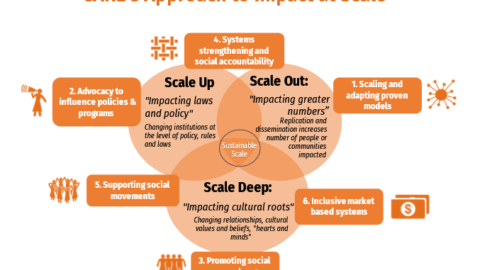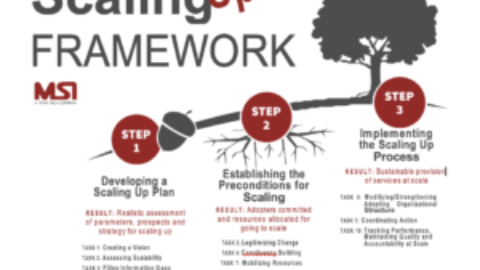By John Branch jbranch@poverty-action.org
1. Working from Within Governments to Encourage Evidence-Informed Decision-Making
One strategy for moving evidence to policy that engenders particularly meaningful partnerships is to work from within governments, whether through embedding staff within government offices or facilitating the institutionalization of an “evidence unit” within a ministry. Our goal is to help governments accomplish their own goals, using the best available evidence and/or generating their own evidence. In this blog post, we share some of the lessons IPA staff have picked up along the way in different countries. Building relationships takes time, and cultivating trust takes even longer. Embedding staff can jumpstart this process, leading to mutual learning and organic change.
2. How to Keep Good Research from Dying a Bad Death: Strategies for Co-Creating Research with Impact
Some of the most important tools for impact come into play at one critical juncture: when the research funding runs out, the analysis is done, and the final grant report is complete. This is a crucial window of opportunity: either the team loses momentum and lets our partner- ships and potential impact wither, or we continue to pursue next steps in policy and research. Researchers are often invested in disseminating the results of their research to the practitioners and policymakers who helped enable it—but disseminating a paper, developing a brief, or even holding an event may not truly empower decision-makers to make changes based on the research. This blog post offers some tips for researchers, funders, or practitioners interested in what can be done at this critical point to turn evidence into policy.
3. Policy Impact Right from the Start: Strategies for Co-Creating Research with Impact
What Nava Ashraf, Professor of Economics at the London School of Economics and Lead Academic for IGC Zambia, and others have coined “co-creation of evidence” is becoming a cornerstone of IPA’s strategy. We’re naming as a priority this collaborative process of researchers and stakeholders generating knowledge together in order to ensure evidence is applicable to real world situations. This entails an authentic commitment from all partners—researchers, implementers, policymakers—to ensure that they mutually build each other’s capacity to drive knowledge creation through field research and policy engagement. This blog post outlines a few ways a few specific ways in which we’ve tried to pursue this genuine co-creation of research around the world.
4. IPA also has another recent impact case study about a program that was scaled in Peru: Improving School Maintenance with Text Message Alerts in Peru
In partnership with researchers, IPA, and J-PAL, Peru’s Ministry of Education is designing and rigorously testing innovative solutions aimed at improving education in the country through an innovative research lab called Minedulab. As part of Minedulab, researchers designed and evaluated an innovative text message alert campaign that “nudged” schools to use allocated funds for maintenance of school facilities. Researchers found that campaign increased adherence to the program and was cost-effective. In response, the agency responsible for the program has scaled it up at a national level. This brief case study explains the intervention and process that led to the campaign reaching scale.



